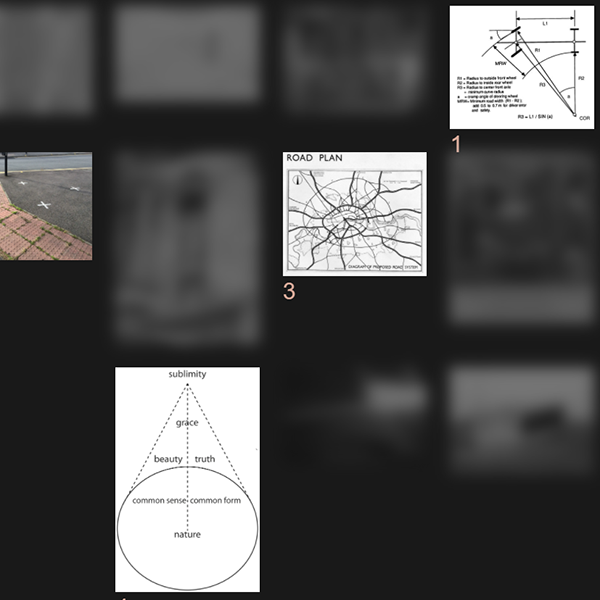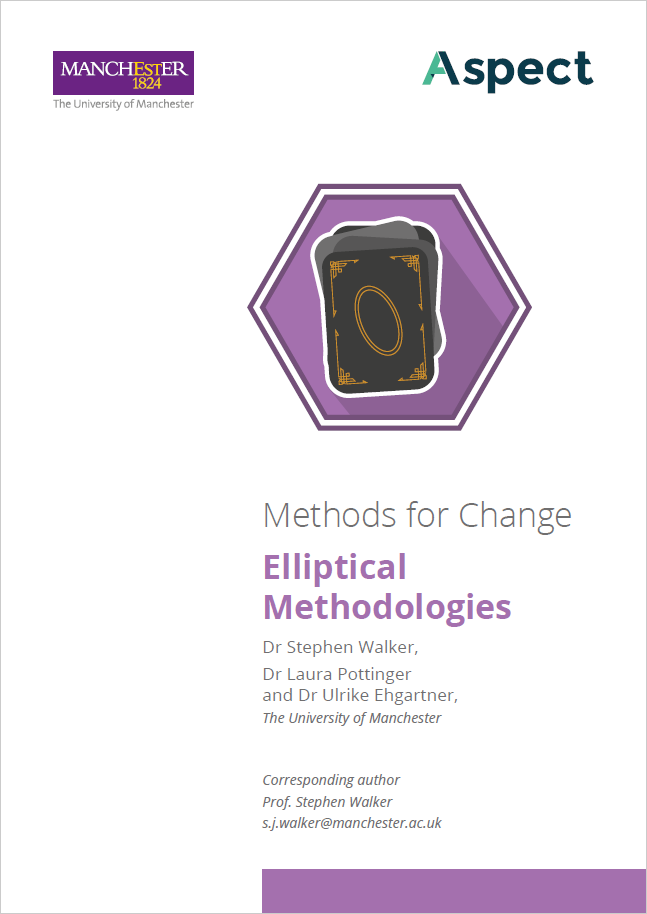Research Method: Elliptical Methodologies
An Elliptical Methodology can provide a creative and provocative framing for exploratory research studies. This approach works by taking two very different focal points, which could be based on observations or be theoretical in nature, and using them as a way of shaping a research project. The idea is that these two foci or poles work as opposing centres of gravity, forming an ellipse or path which then acts as a structure for open-ended inquiry.
This approach is particularly useful for studying things that are often left out or overlooked – social issues, subcultures, practices or things that tend to be excluded from existing research. It has been applied to explore phenomena such as mediaeval Breton burial practices, early computer simulation, forensic accident reconstruction, twentieth century ring-roads, failed architectural projects, tablecloths and working surfaces. By encouraging the researcher to look at a topic from a range of different and perhaps unexpected angles, Elliptical Methodologies can provide new insight into things that may otherwise be unseen or disregarded, as well as offering fresh perspectives on more established research topics. Researchers working with an Elliptical Methodology may draw on many different types of methods and sources (e.g. archives, architectural records, participant observation, photography, film, oral histories) depending on the research context and on the two poles chosen to form the ellipse. This is not an approach that can be easily generalised to provide a road-map for application in different contexts. Rather, Elliptical Methodologies provide a device for framing experimental studies, and for thinking about how theories – sets of ideas or principles used to explain something – relate to the phenomena that are studied through research.
Stephen has produced a small web-based, interactive site associated with elliptical methodologies. It offers a number of ‘constellations’ formed fairly randomly from images taken from disparate projects. Potential connections emerging from each constellation are then suggested very concisely.
>Visit the site<
You can find all the research outputs from the Methods for Change series here






